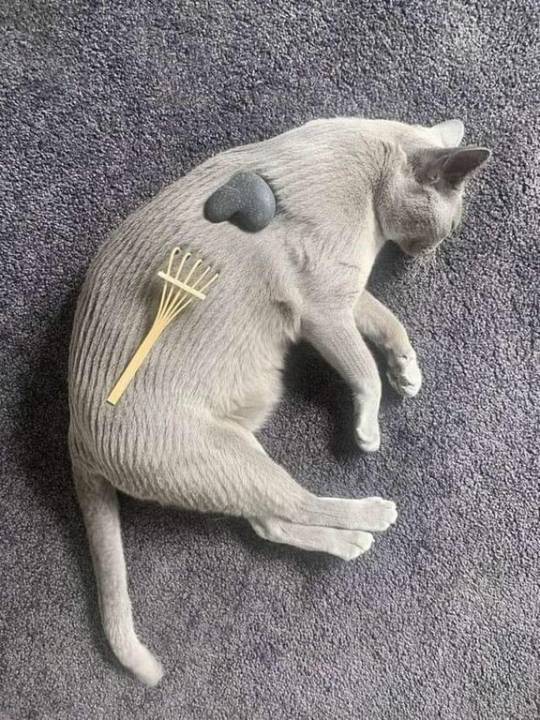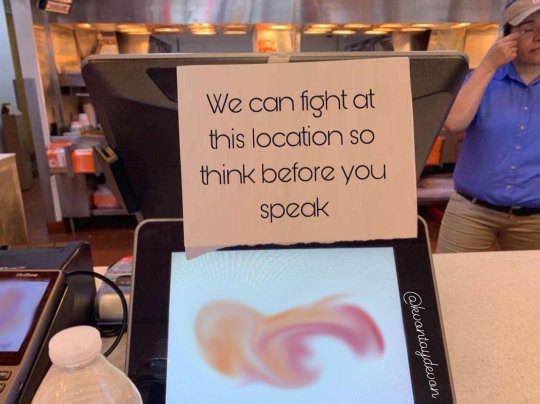Photo
Thorin OakenAbs

a friend commissioned me to draw shirtless thorin :]
4K notes
·
View notes
Text
You Can Own a Woman, OR You Can Own a Knife.
There is a part of me that wants an isekai story to take a Hitchcockian left turn where it's telling about Our Hero and he has gotten some kind of OP ability - perhaps a magic eye that lets him learn any magic he sees - and he engages in the now exhaustingly time-honored tradition of purchasing a slave waifu
and she cuts his throat in his sleep the first chance she gets.
The entire rest of the show is about her.
The Goddess shows up, confused and incensed, and she agrees to "take responsibility" for having killed him, and demands the power the Goddess gave him, with the promise that she will use it better.
Based on a lot of the "OP protag with copycat power" isekai I've seen, this is not a high bar. I think I mentioned before but in "The Secret Dungeon Only I Can Enter" our hero gets outclassed by the villain on raw creativity, in the use of a power called "Get Creative," which lets you make up your own superpowers. It wasn't a moral thing, either! It wasn't like the villain was going, "Well we could boil their blood with this power" - No. The hero's creativity amounted to throwing a rock with magic.
So if we had the slaveowner protagonist be roughly that creative prior to his death at the hands of the real protagonist, he wouldn't even be out-of-step with others in the genre.
I dunno, I think it'd be a good twist for the series. Like, episode 3-4. We could have her appear in the first episode briefly, like it's setting up for the slave-auction meet-cute. And then purchase in episode 2, and he dies episode 3.
2 notes
·
View notes
Text
I wish there were a way for this kind of thing to happen on Twitter without the entire rest of Twitter existing.

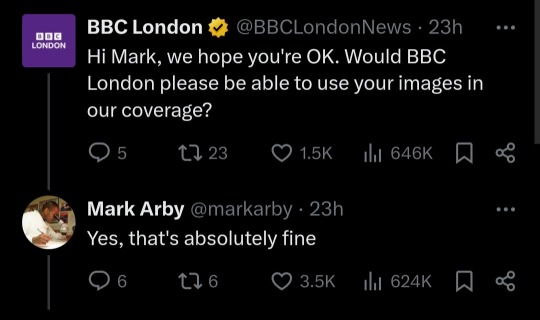
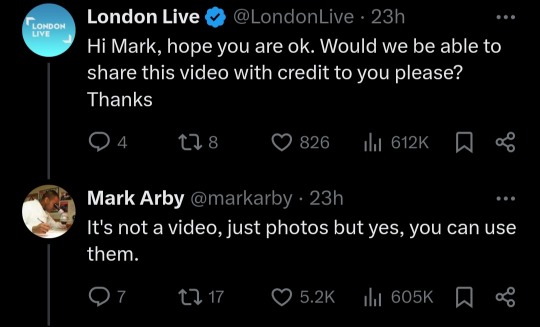
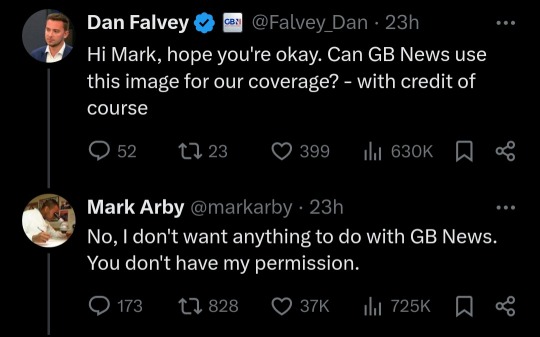
26K notes
·
View notes
Text
The latest automatic update to my computer is really visible, in a bizarre but truly neutral way:
It turned off the randomization of my desktop backgrounds.
My backgrounds folder is 3,248 images, and it changes every 15 minutes.
So now instead of bouncing from one art style to another really quickly, there might be several hours with nothing but one artist's work.
If I get into an artist with a lot of similar work I can lose some of my sense of time from the picture not obviously changing, or I can get confused about, "Wait, did it change?"
0 notes
Text
I hate non-pause menuing.
I hated when FFX-2 did this, and I hate it with its fancy 1/20 speed in FF7R too.
What happens when you have this sorta-kinda-paused situation available is that the devs design systems as if you could pause.
Players who can memorize menuing paths can easily get to everything, but players who get distracted by the pretty visuals you're causing to continue to play even more slowly and beautifully will lose a lot of time to not being able to see their own menu in all the action.
Also, not for nothing, you're punishing me for taking time to enjoy your visuals.
There's some stuff in the middle - Kingdom Hearts has a similar system but with no pausing at all; You can set favorites same as FF7R but you can't input commands when you pause the game; If you want to cast a spell you haven't favorited the game demands you just do your menu while running for your life.
You'd think that would be worse. Now and then it is. But most of the time two other factors balance it:
The developers make the game on the assumption that you'll be focusing on the action, not the stuff in the menus, during combat sequences. In KH's case this means most of your damage comes from your basic attacks and most of your defense comes from being able to dodge or parry almost everything in the game.
In FF7R Tifa can't dodge most enemy attacks. When it's their turn you need to hold R1 to block and reduce damage; In essence, break up your own game flow.
The players in KH play the game on the assumption that they'll be limited to just their preset moves. In FF7R that hasn't been the feel. I've been trying to figure out the right moves for each fight, and that means going into the menus and trying to use spells and abilities to deal with each problem as it comes up. It puts that tactical depth in front of me, and then punishes me for attempting to use it.
Just. Fully pause the action. I know you can. Let me fuckin' think.
1 note
·
View note
Text
👍🏻 🍌 ☃️ 🎉 ❤️
I'd say ☃️ is ridiculous for Unrestrained Summer Fun, except it was 38 degrees when I got up this morning so who the hell knows anymore.
For those who wish to participate via Tumblr-not-on-a-phone:
On Windows the Windows button + ; or . brings up the emoji menu.
On Mac it's Cmd-Ctrl-Space.
first 5 faceless emojis are how your summers gonna go
304K notes
·
View notes
Text
Excellent Villain Writing
It's interesting because one of the plot points of Not a Typical Reincarnation Story is that the story's "fixes" to irregular human behavior in them are kind of poorly written - perhaps the original novel the character's stuck in was okay, but whoever's using that as a basis for a real world isn't good at adapting when a human brings in Facts And Logic.
Anyway in spite of that, the character of Cliff is actually an excellently written villain.
The Context: In the novel the brothers Cliff and Killian were fighting over the affections of Rhyse. Killian was briefly married to the evil Edith from the villainous Rigelhof family but her obsession and jealousy drives her to increasingly blatant acts of sabotage and violence and she's at last executed, and then the tension of the love triangle is in full swing.
But in the comic Edith is played by a reincarnated human - and not just any, but one who read the novel. She knows how this goes for her if she's a jealous little shit, so she is a fine upstanding citizen and furthermore she is genuinely nice to Rhyse, which screws with everything about her portion of the base story. If she's not being horrible it would make the good-guy family look bad to execute her, so she's living past where she was supposed to be written out of the story. But if she's a good person and as bewitchingly lovely as the evil temptress she was supposed to be, it makes Killian look bad if he doesn't, like, at least attempt to care for his own wife.
In the process of all this story-breaking, Killian's been falling for her.
And finally there's enough context for the latest scene:
Cliff is egging on his brother to pay less attention to his own wife and more attention to Rhyse, who is supposed to be the woman in the love triangle.
Now, Cliff has been firmly villain-coded the whole story long. Every time something bad is happening to a good person and he's on screen, he is smiling. And a lot of the story we've seen that hasn't been from Edith's perspective has been from Killian's, and Cliff is the jerk older brother that never lets him win at anything.
And this is what makes his act here such excellent villain writing.
By rights Cliff should be happy to let his brother get out of the love triangle so he wins by default, but he's so obsessed with the contest that he can't accept the idea of his brother walking away from it and spending attention on his own damn wife. It's not enough to have Rhyse at his side or even to "win her heart." Without his brother to defeat at it, he's lost and confused.
In this scene Cliff is at once pathetic, obnoxious, twisted, sad, and really offensive. He's been a constant threat to Edith, happily treating her as guilty-by-default, like an NPC whose dialogue hasn't been properly rewritten in response to altered player behavior. But this shows how little he thinks of his brother and even of Rhyse herself.
And the thing is, this idea of the "sore winner" is a character most of us have met. Even if Cliff turns out to be doing this because he's actually an NPC that can't pivot like a real person, or something, for now this still feels like pretty naturalistic character writing. It's not that unusual for actual people to get hung up on the people around them sticking to the script, and paradoxically upset with character growth in people they should care be happy for.
9 notes
·
View notes
Text
Last time I encountered a pun this tortured I was listening to “Wait Wait Don’t Tell Me.”

49K notes
·
View notes
Text
A friend sent this to me today and I feel attacked😅

18K notes
·
View notes
Photo
Narrator describing his viewing of OFMD Season 1

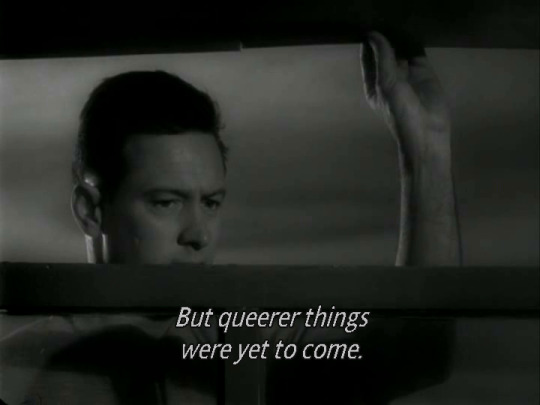
169K notes
·
View notes
Text
This reminds me of media framing of "[Comedian] DESTROYS [Politician]!" Like, did they really, though? [Comedian] said an incisive - perhaps even true - thing about [Politician], to an audience that predominantly was never going to vote for or support [Politician] in the first place.
We seem to have very different ideas of what the word "destroy" means, Mr Clickbait Video Maker Man.
I already talked about this basic concept in regard to shipping, but sure, another look at it:
There are a few reasons why people struggle to calmly discuss differences in opinion regarding media they like...
...but I think one is as simple as we're not instinctively wired to treat anything we're debating as though neither person has any control over it.
For example, someone arguing against anime protagonists wearing hats.
This person does not work in anime. They have no say whatsoever in the wearing of hats in any anime.
Someone else, however, LOVES anime protagonists wearing hats, AND THAT THING THEY LOVE IS BEING THREATENED!
Except, it's not being threatened. Not at all.
This person not liking hats on anime protagonists will have no impact whatsoever on hat-wearing by any anime protagonists.
Emotionally, however, it can feel otherwise. Examples supporting this can be found all over social media.
38 notes
·
View notes
Text
Announcements
Twine maintains a history of all the passages you've already looked at.
This means if, like so many text adventures, you're using passages as rooms and allowing for revisiting within them, you can include an initial room description separate from later room descriptions.
Such as,
(unless: (history:) contains 'Storm Cellar')[You enter the storm cellar(if: $aliens is not 0)[, working hard to get your breathing under control].
]\
If you've already had one or more alien encounters, this says, "You enter the storm cellar, working hard to get your breathing under control." If you haven't had an alien encounter, this says, "You enter the storm cellar." And if you've already been to the Storm Cellar the whole block is skipped.
You can also create a sense of space being mutable by having descriptions of objects you can loot pick up.
This shed has a work table, as well as a band saw practically swimming in sawdust. (unless: $wrench)[On the work table there is a large, shiny [[wrench]]. It might be magical! Probably not, though.]
Then the passage "wrench" starts with (set: $wrench to true) and loops back to the same passage, but the "same passage" will be missing the description of the wrench because you picked it up.
It's worth understanding the limitations on this, programming-wise. This method doesn't allow for putting stuff down outside of areas designated by you the writer, so it's not great for puzzles akin to most point-and-click series where you had to Use X on Y. In an items-as-booleans system, you'd have to offer these options to the player, which either gets outlandishly fiddly to both write (including all these options every passage) and read (every passage now has a paragraph of author-offered actions, most of which do nothing of value), OR you have the presence of an offered action kind of giving away the puzzle.
To make a puzzle of this, you probably need the answer to most of your puzzles to be some relative of "get A to B before C happens" or "Get A to B but without C present."
3 notes
·
View notes
